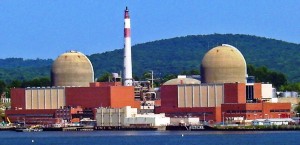Author: Renée Cho23
-

Indian Point: Safe, Secure and Vital or an Unacceptable Risk?
The owners of Indian Point nuclear power plant want to re-license the facility for 20 years. Opponents say the plant is unsafe and we can do without its electricity. Supporters say it’s safe, and we need the power.
-

Data’s Power to Spur Environmental Progress
In January, 132 countries received their environmental report cards. The Environmental Performance Index has goaded leaders into action by letting them see their countries’ strengths and weaknesses compared to other countries.
-

What Happens to All That Plastic?
Americans discard about 33.6 million tons of plastic each year, but only 9.5 percent of it is recycled and 15 percent is combusted in waste-to-energy facilities. What happens to the rest of it?
-

Building NYC’s Resilience to Climate Change With Green Infrastructure
Climate change will impact New York City through more frequent heavy precipitation, sea level rise and rising temperatures. To strengthen its resilience, the city is planting trees and mini-parks, restoring wetlands and installing more permeable surfaces.
-

Restoring Damaged Ecosystems – The Challenge of Haiti
In 2010, almost two-thirds of the world’s ecosystems were deemed degraded due to human impacts and mismanagement, but fortunately ecosystems can be restored. The Earth Institute’s work in Haiti illustrates just how complicated ecosystem restoration can be.
-

Rethinking Our Food System to Combat Obesity
The Earth Institute’s Urban Design Lab and MIT Collaborative Initiatives joined to investigate the issue of obesity through the prism of design. Their conclusion: “No single effort to curb childhood obesity will be sustainable or effective on a broad scale if the larger food system is not addressed.”
-

How You Can Help Earth Cope with 7 Billion
Earth’s population has more than doubled in the last 50 years to 7 billion. The numbers represent big challenges—feeding and providing for additional people on a planet already stressed by environmental damage and climate change. What can ordinary individuals do?
-

Vertical Farms: From Vision to Reality
Dr. Dickson Despommier believes vertical farming—the growing of crops indoors in multi-story urban buildings—can help feed the growing global population and undo the environmental damage caused by conventional agriculture.
-

Removing Dams and Restoring Rivers
On Sept. 17, 2011, the removal of two large hydroelectric dams on the Elwha River in Washington State, which have blocked migrating salmon from reaching their spawning grounds for almost 100 years, will begin. While this is the largest dam removal project in U.S. history, it is just one of several major dam removals planned…
